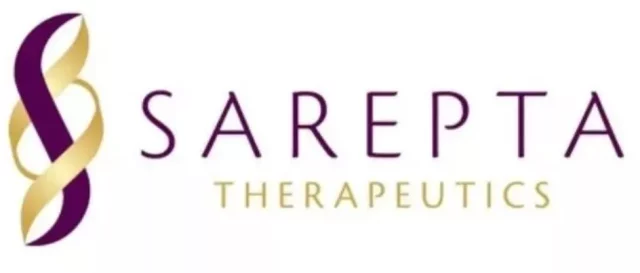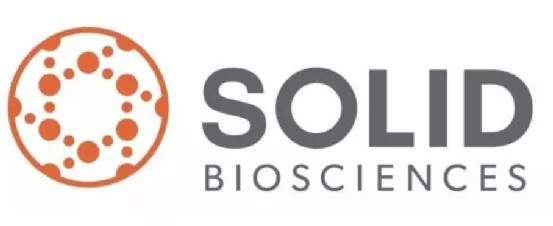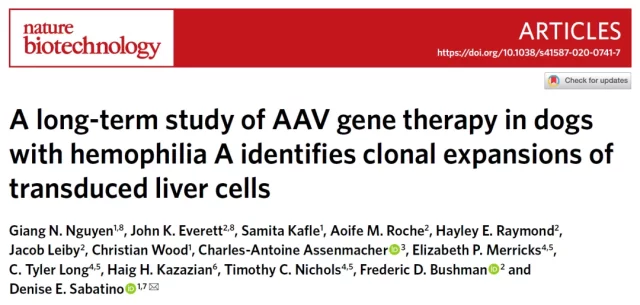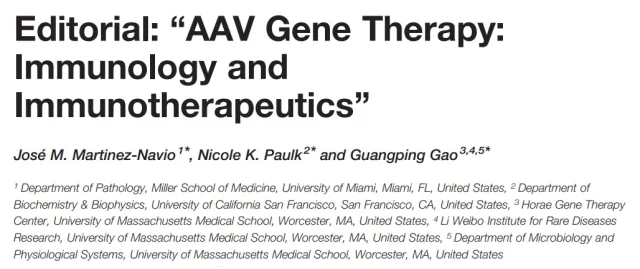Pfizer DMD gene therapy: The patient died and clinical trials are suspended
- Why Lecanemab’s Adoption Faces an Uphill Battle in US?
- Yogurt and High LDL Cholesterol: Can You Still Enjoy It?
- WHO Releases Global Influenza Vaccine Market Study in 2024
- HIV Infections Linked to Unlicensed Spa’s Vampire Facial Treatments
- A Single US$2.15-Million Injection to Block 90% of Cancer Cell Formation
- WIV: Prevention of New Disease X and Investigation of the Origin of COVID-19
Pfizer DMD gene therapy: The patient died and clinical trials are suspended
- Red Yeast Rice Scare Grips Japan: Over 114 Hospitalized and 5 Deaths
- Long COVID Brain Fog: Blood-Brain Barrier Damage and Persistent Inflammation
- FDA has mandated a top-level black box warning for all marketed CAR-T therapies
- Can people with high blood pressure eat peanuts?
- What is the difference between dopamine and dobutamine?
- How long can the patient live after heart stent surgery?
Pfizer DMD gene therapy: The patient died and clinical trials are suspended.
A few days ago, FDA suspended Pfizer’s ongoing phase Ib clinical trial of PF-06939926, a gene therapy candidate drug for Duchenne muscular dystrophy (DMD) .
Previously, Pfizer admitted that a young male patient died in the clinical trial.
This clinical trial aims to evaluate the safety and tolerability of a single intravenous infusion of PF-06939926 in patients with Duchenne muscular dystrophy (DMD) .
Unfortunately, the death of this patient indicates that this trial may have a potential risk that has not been previously identified .
Pfizer issued a statement stating that it has suspended the clinical trial and will review the data with an independent external data monitoring committee.

A new gene therapy drug based on AAV vector-PF-06939926
Duchenne muscular dystrophy (DMD) is a recessive X chromosome disease, so the patients are mostly male . According to statistics , one out of every 3,500-5,000 newborn boys in the world suffers from this disease.
Patients generally start to develop symptoms at the age of 3-5 years, and they first show progressive leg muscle weakness, which causes inconvenience to walk.
It usually loses the ability to walk at the age of 12. Heart and breathing weakness begins in adolescence, leading to severe complications, and usually death from respiratory failure between the ages of 20 and 30.
Duchenne muscular dystrophy (DMD) due to encoding the anti-muscle atrophy gene on the X chromosome protein (Dystrophin) mutations that cause can not produce enough, the patient’s muscle tissue is gradually replaced by dystrophin adipose and fibrotic tissue.
The Dystrophin gene is very large, with as many as 79 exons. Therefore, direct delivery of the correctly encoded full-length Dystrophin gene for gene therapy is not feasible.
There are currently two gene therapy strategies: one is to edit the DNA or mRNA of the Dystrophin gene and directly skip the exons with mutation sites, which is the so-called “exon skipping”; the other is to extract Dystrophin. gene part to create a mini-dystrophin (mini-dystrophin) , it can still play a role, and small enough to be delivered using AAV virus.
PF-06939926, developed by Pfizer, chose the second strategy, using recombinant adeno-associated virus type 9 (AAV9) as a delivery vector to deliver the Mini-Dystrophin gene .

The first boy with DMD treated with PF-06939926
The subsequent impact of the suspension of the trial
On the whole, AAV gene therapy is safer, but this incident will obviously delay Pfizer’s plan and will also affect the entire DMD gene therapy market.
In addition to Pfizer, Sarepta Therapeutics and Solid Biosciences are also committed to the development of DMD therapies.
Previously, the FDA has approved three antisense oligonucleotide drugs from Sarepta Therapeutics for the treatment of DMD patients. These three drugs are Exondys 51 (Eteplirsen) , Vyondys 53 (Golodirsen) and Ammondys 45 (Casimersen) .
All drugs are exon skipping strategies. These three drugs have brought strong revenue to Sarepta , with sales expected to exceed $600 million in 2021.

Also in the third quarter, Sarepta launched the MOMENTUM key trial part B of SRP-5051 (NCT04004065).
The company’s new generation of peptide-coupled phosphodiester morpholino oligomers (PPMO) can be used in DMD patients with exon 51 skipping.
Sarepta also developed the therapy SRP-9001, which uses AAV to deliver small Dystrophin genes. However, at the beginning of this year, the phase 3 clinical trial of the therapy failed.
At the same time, another company that develops DMD gene therapy, Solid Biosciences , said last month that they plan to increase the dose in the phase I/II IGNITE DMD clinical trial (NCT03368742) during the fourth quarter and plan to In early 2022, the 90-day biopsy data of the first three patients receiving SGT-001 therapy, as well as long-term expression and function data are reported.

Solid ‘s SGT-001 therapy is the same as Pfizer and Sarepta’s strategy, and it also delivers small Dystrophin gene therapy through AAV .
Safety issues of gene therapy
Since the birth of gene therapy, safety has always been a concern. In September of this year, Astellas ‘ AAV gene therapy AT132 for the treatment of X-linked myopathy (XLMTM) led to the death of the fourth patient in a clinical trial.
The first three patients who died received high-dose administration (received 3.5×10^14 vg/kg) , while the fourth patient who died received low-dose administration (1.3×10^14 vg/kg) ) .
The dose received by patients who died in the clinical trial of Pfizer for the treatment of DMD was 2×10^14 vg/kg. This suggests that low doses of AAV gene therapy may also have serious safety issues.

In addition, on November 16 , 2020, Nature Biotechnology published a paper on the AAV virus gene therapy test on dogs with hemophilia A.
The effect was obvious. After ten years of observation after treatment, the research team found that AAV Some of the therapeutic gene fragments carried by the virus are integrated into the dog’s chromosomes near the genes that control growth, which may induce cancer .
This finding suggests the need for long-term monitoring of the potential genotoxicity of AAV gene therapy.

Recently, a series of deaths in AAV gene therapy have caused researchers to discuss the safety of gene therapy doses (especially high doses) .
On December 21, 2021, three gene therapy experts including Gao Guangping published an editorial titled: AAV Gene Therapy: Immunology and Immunotherapeutics in Frontiers in Immunology .
They pointed out that people are concerned about the immunogenic response caused by high-dose intravenous injection of recombinant AAV viral vectors, which highlights the need for extensive analysis of AAV in order to identify and classify potentially immunogenic vector batch components.

In 1999, 18-year-old Jesse Gelsinger , who suffered from a serious genetic disease ornithine transcarbamylase deficiency , suffered a serious illness after receiving an adenovirus gene therapy clinical trial led by Professor Jim Wilson , director of the Institute of Human Gene Therapy at the University of Pennsylvania.
He died after an immune response and became the first person to die due to gene therapy.

Jesse Gelsinger (picture left), Professor Jim Wilson (picture right)
Since then, the US FDA began to investigate and strictly review gene therapy clinical trials. At that time, the gene therapy star vector adenovirus gradually declined, and the entire gene therapy field began to be silent for 20 years.
Since then, safer gene therapy vectors, adeno-associated virus (AAV) vectors have been widely used, and gene therapy has re-emerged. Nowadays, AAV has become the carrier of choice for gene therapy, and the FDA has also approved a variety of AAV vector gene therapy drugs. AAV has achieved great success in basic scientific research, clinical trials, and commercialization.
However, the recent successive occurrences of patient deaths reminded us that AAV carriers are also facing safety issues.
References :
https://www.nature.com/articles/s41587-020-0741-7
https://doi.org/10.3389/fimmu.2021.822389
Pfizer DMD gene therapy: The patient died and clinical trials are suspended
(source:internet, reference only)
Disclaimer of medicaltrend.org
Important Note: The information provided is for informational purposes only and should not be considered as medical advice.



